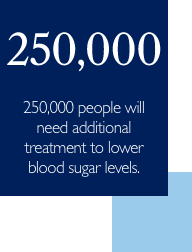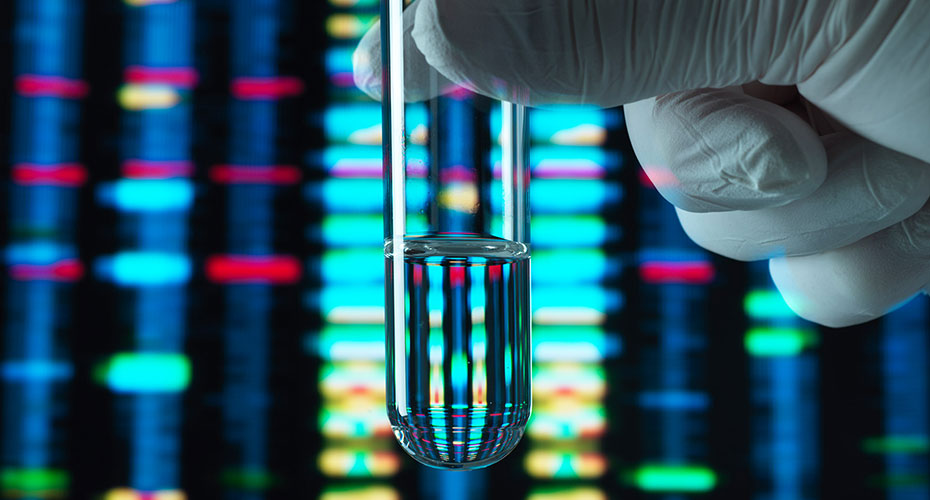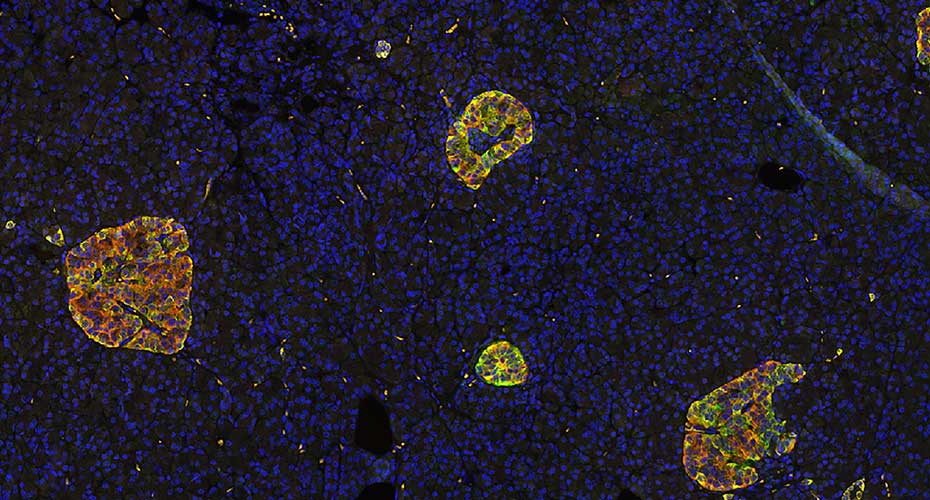Understanding type 2 diabetes, to treat all its forms
28 January 2021
4 mins to read
No "one size fits all" in type 2 diabetes
By far the most common form of diabetes, type 2 diabetes is nevertheless misunderstood. While classified as one condition, the complex disease actually comes in all shapes and sizes.
Professor Andrew Hattersley, at the University of Exeter Medical School, said: "type 2 diabetes can affect the young and the old, the large and the slim. There’s enormous variation, and in order to get the best treatment for patients, we need to understand the subtleties, and how they affect treatment outcome."
Complex genetics of type 2 diabetes
The Exeter team's work, led by Professor Tim Frayling, has contributed to great strides in genetic understanding of type 2 diabetes. In 2007, their paper in Science identified in FTO the most important genetic change predisposing to obesity, which has been called the "fat gene". This work helped confirm the important link between obesity and type 2 diabetes reflected both nature and nuture.
The team has gone on to use genetics to highlight that there is more to Type 2 diabetes than just how overweight you are, and that factors including inherited genetic susceptibility, ethnicity, age and gender are all important. They also found that whereabouts in the body someone stores fat matters, which helps explain why not all overweight patients have type 2 diabetes and how you can get type 2 diabetes and be slim.
Building on genetic diabetes success improves type 2 treatment.
Some patients thought to be type 2 actually had genetic forms of diabetes, which responded better to particular drugs. Dr Beverly Shields began as a project manager in the Exeter team. Now Senior Lecturer in Medical Statistics, via a PhD and MSc, she led on the challenge of helping clinicians differentiate genetic diabetes from types 1 and 2. Her model analysed simple characteristics available in clinic, combining blood test results with age, BMI and family history.
The result is a highly successful and accurate app and website, which calculates the probability of forms of genetic diabetes, and has attracted 150,000 hits worldwide. "We’ve had excellent feedback from clinicians and patients globally, who have used this precision diabetes tool to identify genetic diabetes, and to get the right treatment for that patient," Dr Shields said.
The team has built on their work in developing and rolling out statistical models, and has moved into using the approach to classify the more common forms, type 1 and type 2 diabetes.


Improving treatment in type 2 diabetes
More than four million people in the UK have type 2 diabetes. Treatment guidelines recommend metformin as the first option for most people, but around 250,000 people every year will need additional treatment to lower blood sugar levels.
"There’s currently very little in guidelines to help clinicians with that decision,” said Dr Shields. “We’re now developing tools to identify which treatment is the best for a particular patient, because it lowers glucose well and is unlikely to cause side effects."
Data scientist Dr John Dennis undertook a PhD at Exeter after a finance industry background of building models to provide people with pre-existing medical conditions with better pension rates. "It was absolutely a case of being in the right place at the right time. I was interested in diabetes, and the large medical datasets needed to use data science to study precision medicine in type 2 diabetes were available for the first time."
"Even during my PhD, we led early studies that showed the proof of principle for a precision approach to type 2 diabetes treatment. This has led to a huge amount of global interest in Exeter’s diabetes research."

"Even during my PhD, we led early studies that showed the proof of principle for a precision approach to type 2 diabetes treatment. This has led to a huge amount of global interest in Exeter’s diabetes research."
Dr John Dennis
Independent Research Fellow, funded by Research England

Now an Independent Research Fellow, Dr Dennis is using big data and clinical trials to find out and test which simple clinical features are important. "Our early work has shown striking differences in treatment response improvements, based on characteristics that clinicians are already measuring: for example, age, BMI, liver and kidney function. We’re now combining these into a model that will rank each of the medications available after metformin, in terms of their likelihood to lower blood sugar, as well as the risk of side-effects."
"We want to make our model free at the point of care, to support people to get the right drug for them, helping them get better blood sugar control and fewer complications. This builds on Exeter’s strong track record of translating precision diabetes research into the clinic to benefit people with diabetes. Our work is a real step change from the idea that everyone with type 2 diabetes should have the same treatment."


Explore more research

Precision diabetes: The right treatment for each patient
The University of Exeter has led the way in making discoveries that are swiftly translated into healthcare, to improve lives worldwide.

From gene discovery to revolutionising clinical care
When the Exeter diabetes lab was set up in 1995, medicine did not recognise that many forms of diabetes are caused by a single gene mutation.




